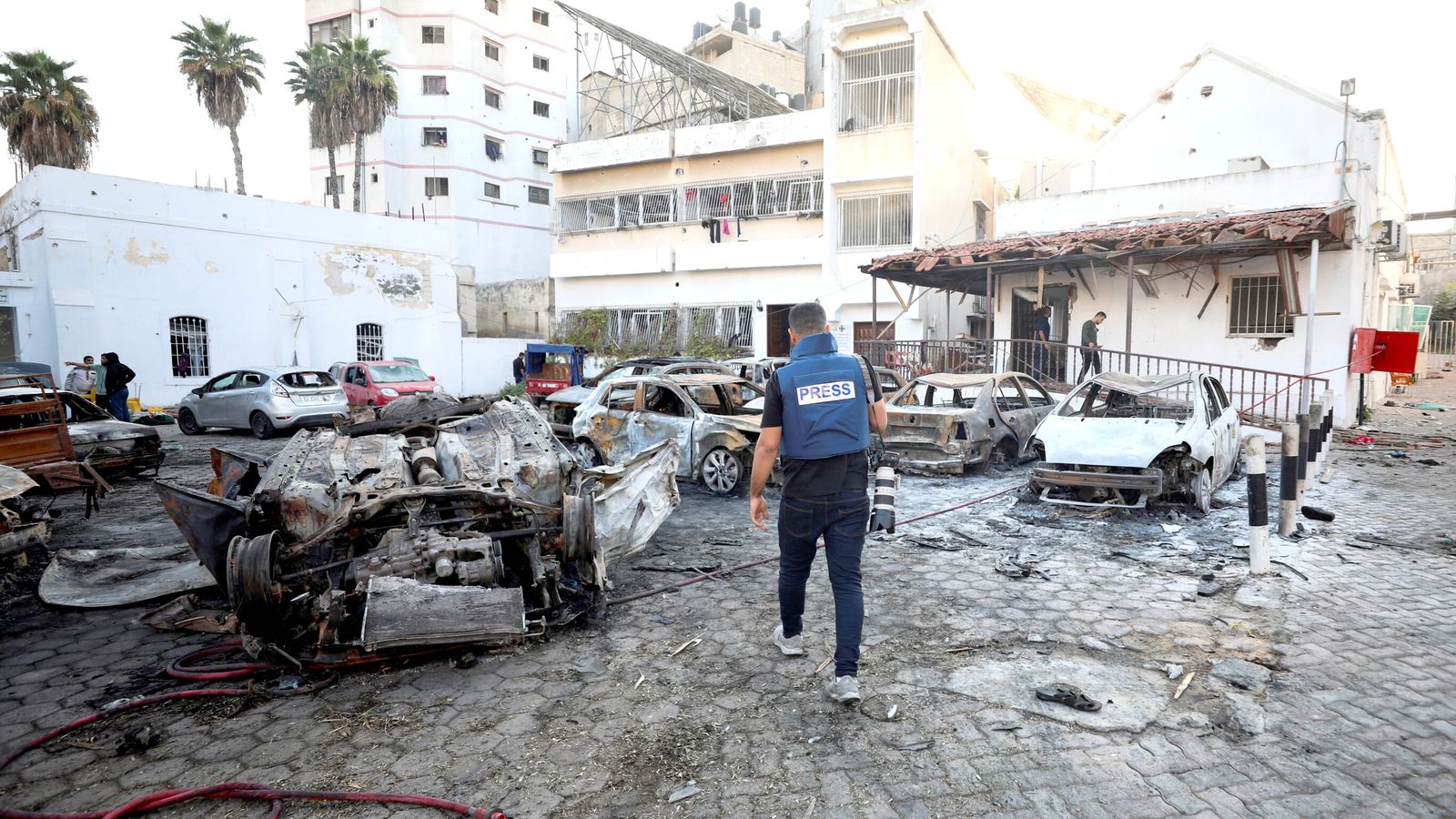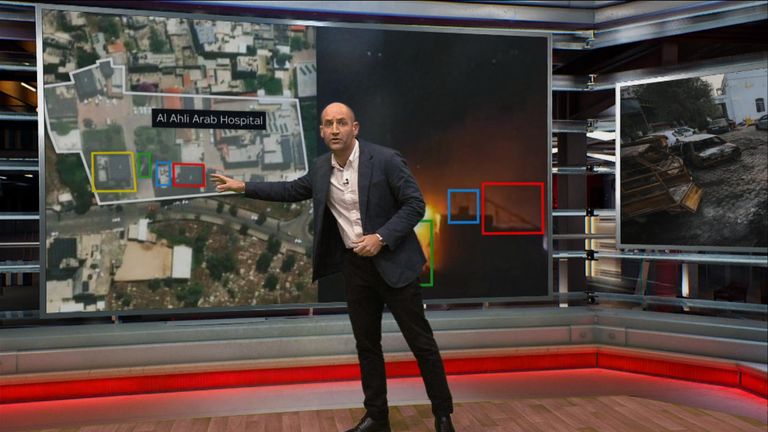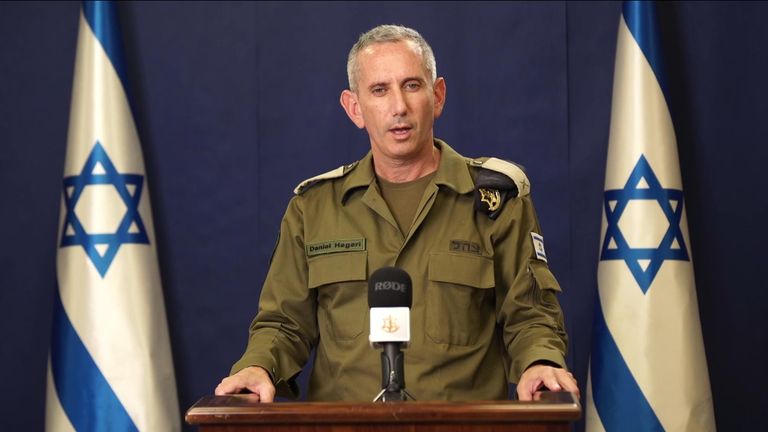US spy agencies believe the blast at a Gaza hospital a week ago was caused by a Palestinian rocket that suffered engine failure and broke apart into two pieces, with the warhead striking the hospital’s parking lot, intelligence officials said on Tuesday.
Speaking to reporters by phone, the intelligence officials said they had “high confidence” in their assessment that it was not Israel that fired the rocket, but were less certain which Palestinian militants fired the projectile on the evening of 17 October.
“We assess with high confidence that Israel was not responsible for the explosion at the hospital and that Palestinian militants were responsible,” one intelligence official said.
“We assess with low confidence that Palestine Islamic Jihad was responsible for launching the rocket that landed on the hospital.”
Israel-Gaza latest: Israel rejects calls for ceasefire and says UN chief should resign
US officials had indicated previously that Palestine Islamic Jihad, or PIJ, was likely responsible and Israel blamed the group for the blast. The militant group shares Hamas’s goal of destroying Israel but is smaller than Hamas, which rules the Gaza Strip.
The evidence pointing to PIJ was based on intercepted conversations between suspected “Hamas affiliated militants” who appeared to be speculating about who was behind the rocket launch, the officials said.
“We can’t confirm who they are. We can’t confirm that what they are discussing in the intercept actually took place,” the official said.
The audio was not the same as that released publicly by Israel’s military previously and was vetted and deemed authentic, the official said.
The explosion at al Ahli Hospital has sparked anger across the Arab world, with protesters embracing the version of events put forward by Palestinian officials and Hamas – that Israel was responsible.
The US assessment on the rocket was based on intelligence, “physical activity”, open source video and images that all pointed to a rocket blast and not a bomb dropped from an aircraft or artillery round used by Israeli forces, the officials said.
“The damage at the hospital is consistent with what we would expect to see from a rocket and inconsistent with the larger craters and broader blast effects that we would expect to see… from an air dropped munition or an artillery round,” the official said.
The explosion resulted in only light structural damage at the hospital and there was no observable damage to the main hospital building, which was consistent with a rocket armed with a smaller warhead, the official said.
Open source video that was geolocated and taken from four locations showed a projectile launched inside Gaza traveling northeast, and 10 seconds later, there appears to be engine trouble based on the intensity of the rocket’s plume, the official said.
Seconds later, there is a flash, with one object falling and then a second.
One of the videos analysed by the intelligence community was aired on Al-Jazeera television, the official said.
US intelligence assesses that the first object falling was the rocket motor, and the second was the rocket’s warhead, which caused a larger explosion, the official said.
“Based on those videos, our conclusion is that there was a catastrophic motor failure that likely occurred which separated the motor and the warhead,” the official said.
“The warhead landed in the hospital compound and that was the second explosion and a much bigger one.”
The official added: “We can’t rule out that new information is going to come to light that would change our assessment on this. But that said, we do have high confidence in our conclusions.”
Palestinian rockets often misfire and miss their intended targets, the intelligence official said.
“The failure rate for these domestically produced rockets is pretty high,” they added. “There are a lot of incidents in which they don’t make it out of Gaza. They land in the sea, they fail to reach their targets.”
“So that does fit within a longstanding, years-long pattern in terms of rocket performance,” the official said.
Intelligence officials said they did not have an estimate on the casualties caused by the blast.
“We don’t have any independent ability to verify the specific casualty count in Gaza,” the official said.
There was no evidence that the rocket was shot down by Israel’s air defence Iron Dome system, officials said.
Read more:
Sunak says hospital blast likely caused by missile from Gaza
Freed hostage, 85, shakes hands with Hamas captor
Arab governments have been sceptical of the US and Israeli assessment of the blast.
“Nobody is buying that narrative in this part of the world,” Jordan’s foreign minister, Ayman Safadi, told NBC News last week.
A senior intelligence official who took part in the briefing said American diplomats had asked for more information to share with governments in the region.
Although an initial assessment was made the night of the blast, US intelligence agencies compiled a more thorough analysis over several days taking into account relevant video and images, the senior intelligence official said.
NBC News is Sky News’ US partner network



